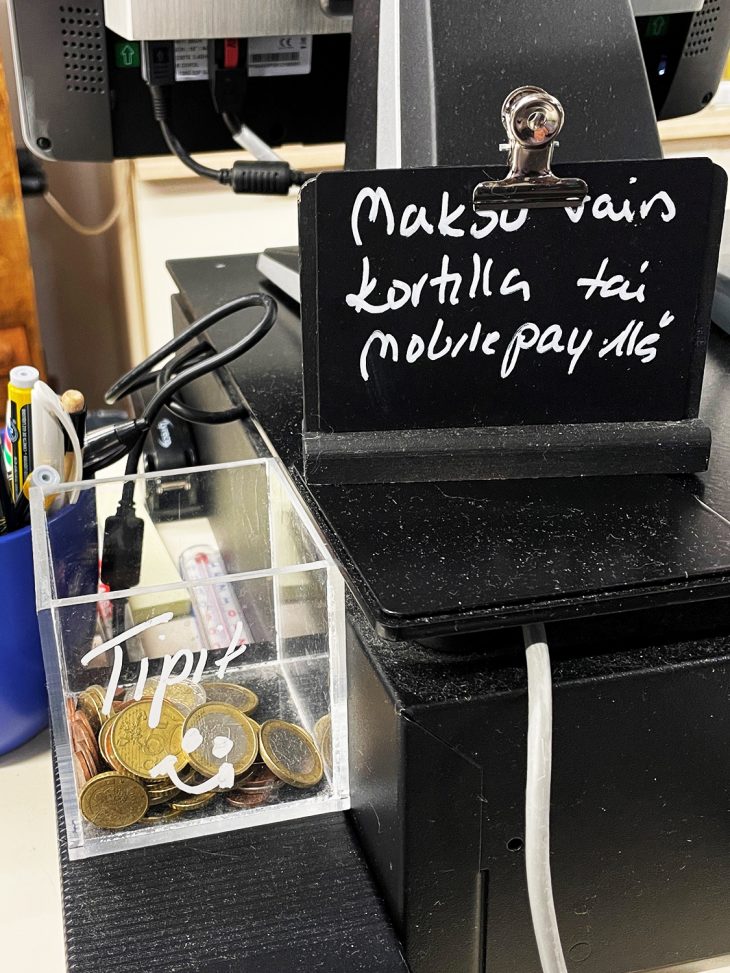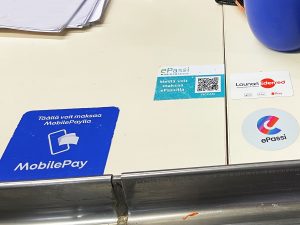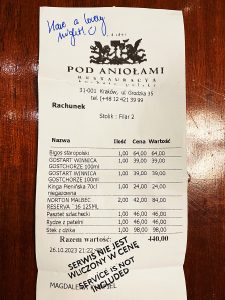
The disappearing tip – the end of gratuities?
Vol. 26, Issue 06, 03 November 2023
We have seen a decrease in the amount of personal cash transactions over several years in favour of electronic payments. People have long become used to payments via bank transfers, credit cards, and online payments, and for most people online banking is a daily occurrence. Add to that the Corona pandemic, where cash was seen as another way the virus could be transmitted, and the need for more acceptance of various electronic transactions for the payment of goods and services was even more important. Now we have got to the stage where card and mobile transactions are the normal methods of in-person payment, and even contactless payments can be found almost everywhere.

Cash transactions still exist, and in many countries, this is still a preferred method of payment as there is less risk of not receiving payment and no added bank transaction fees. Also, for some small businesses, there is an increased cost in taking electronic payments – equipment to be used and transaction service providers – that makes it less profitable than cash. There are of course sometimes less ethical considerations such as avoidance of taxation through the non-recorded transactions.
On recent trips in Europe, I have experienced retailers adding on extras if paying with a card as they try to explain that they have to pay extra themselves for every card transaction. Others have sometimes offered a discount for cash. Some small stores, bars and restaurants refuse card payments outright, stating cash only. Another reason for having cash only payments can be down to poor internet connectivity – something I have been told a few times, but strangely my phone has had a great 4G connection in that area, so one can only assume it is being used as an excuse.
Although cash is still somewhat prevalent, it still seems inevitable that personal electronic transactions are going to continue to be the accepted norm. Whether that is using, for example, bank/credit cards or mobile phone, via a card reader, contactless, or scanning QR codes, it is becoming a global standard way to pay for something in-person or even for simply transferring money between individuals.
What then of cash that is used not as part of a transaction, but as something extra such as a gratuity or tip? When paying a restaurant bill in cash, people have long since left something extra for the service, such as for a waiter/waitress. In some countries this is an established way for service employees to boost their income – indeed, some countries even have a percentage scale telling people how much they should tip for what circumstances. People can be confused by a tipping culture when visiting other countries, and often seek information as to what is “normal”, and tip accordingly. Indeed, when visiting hotels, it is customary to give a small cash tip directly to service staff, e.g. when your luggage is carried to your room or a concierge flags down a taxi for you. think also of musicians (buskers) playing on street corners or subways, or homeless people looking for some support. It is normal to place some spare coins or notes into a hat or instrument case when passing by. But what now happens if you no longer carry cash or that “spare change” around with you? What if the only option is an electronic payment? Having said that, I have seen some enterprising buskers on the streets of London with QR payment codes in front of them for passers-by to scan and pay! What about placing some cash in a charity box? Indeed, these increasingly also have QR codes to scan so that you can pay electronically.
On recent trips I have been confronted with the dreaded “Service is charged at …%” already showing on the bill in a restaurant when paying by card. Indeed, on one bill that was simply for a couple of drinks at a terrace, the waitress brought the bill and very quickly mumbled something about “service added”. When I asked if she could repeat that, as I had not understood, she explained that “I have added 20% service charge to the bill, if that is ok?” As we had not had any exceptional service, and had to ask for the bill three times, I said that it was not ok, and she had to print a new bill.

Adding “service charges” to the bill, especially for card payments, is now becoming a common phenomenon, especially around Europe where there is a lot of tourism. The customer has to either accept the added payment, or pointedly refuse to pay and show that are not happy with something. Most people will avoid the embarrassment of “a scene” and simply pay up. What if you wanted to pay a certain percentage or just round up the amount to the nearest ten euros? We some places have thought of that also, and clearly print or stamp in bold letters on the bill, that “SERVICE IS NOT INCLUDED” meaning that you should think what you would like to add for the service. Often the person bringing you the bill will politely ask “Would you like to add something for service?” In that case, I think it is more acceptable, and it is on the customer to say how much can be added on or not as the case may be. Indeed, in one restaurant in the same city, we actually asked if they could round the bill up so that we could add a tip, but the waitress said it was not possible! So, there is no clear standard for tourists to follow.

But when paying a “service charge”, gratuity, or tip, electronically, can we really be sure that the money will go to that person that served us? With cash we can give it directly to the person, but payment with a card in a restaurant is going directly into the cash register for the owner. Of course, many establishments that work with tips, have some kind of system to share all tips between the staff, after all, you might be tipping the waiting staff for having had such excellent food, so surely the chef is the one that should get the tip?
Regardless of whether you always like to give a tip, or have it forced on you through it already having been added to the bill, the tipping culture has taken a dramatic change through electronic payments. In those cultures where cash and cards are still used side-by-side, with a preference for cash, electronic payments often mean that tips are no longer seen. Where electronic payments are the norm, service charges are now being added where once it was not a part of that culture.
Are we now coming to accept that gratuities are forced upon us through electronic in-person payments? Surely it should be up to you…?
Our student restaurant on Kouvola campus is covering all aspects, they only take electronic payments – cash has not been accepted there for a few years now – but surprisingly they still have a cash “tip box” next to the cash register!
- First impressions last – dress to impress for an interview - 15th November 2024
- If we had true unity, could Europe be run like a Business? - 27th September 2024
- BIP – Rijeka, Croatia - 13th September 2024
